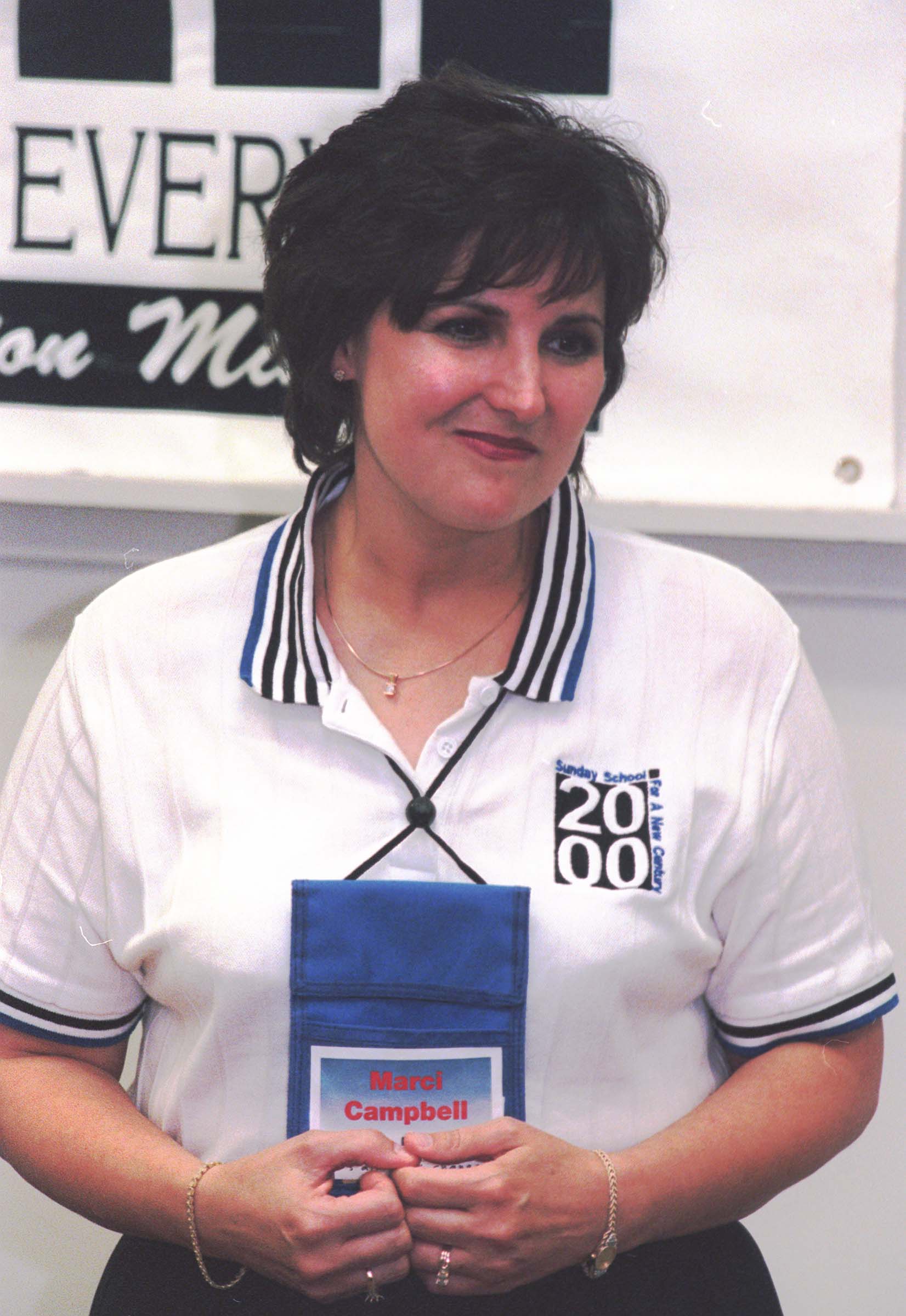
RIDGECREST, N.C. (BP)–Twenty percent or 54 million Americans have special needs, and churches should have programs to minister to them, a national consultant said.
“Jesus didn’t tell us to minister to just those who can walk up our steps, who are socially acceptable, who are good looking or who are well-behaved and highly intelligent,” said Marci Campbell, a special education consultant in the Sunday school/FAITH ministry department at LifeWay Christian Resources of the Southern Baptist Convention.
“No, the Bible tells us to minister to everyone,” said Campbell, who taught a workshop for churches interested in beginning a special education ministry during National Sunday School Leadership Development week at Ridgecrest (N.C.), a LifeWay Conference Center.
Campbell said people are misinformed when they think of people needing special education as being only mentally challenged. “Of this 20 percent of Americans with special needs [from 1990 U.S. Census figures], only 3 percent have mental retardation.”
People with special needs have a variety of challenges, she said. They may deal with hearing disabilities, learning disabilities, physical disabilities, multiple disabilities, mental handicaps, visual impairments, behavior disorders or be exceptionally bright.
Additionally, it is not only the people with special needs who are hurt when churches don’t offer specific programs for them, she said.
“It’s their whole families who may be kept out of churches when the person with special needs can’t attend. That’s a lot of people who may not hear the gospel.”
Campbell said she heard a story last year about a man with a 10-year-old special needs son who had visited 58 churches in an attempt to find one that could minister to his child.
“Fifty eight churches! This isn’t a choice for our churches. It’s a command from the Lord that we share the gospel with all people.”
Throughout the Bible, Campbell said, God used people with special needs. “Look at Moses, he didn’t speak well. Look at Peter, a classic ADHD (attention deficit hyperactivity disorder). He was volatile, impulsive. Do you believe he really thought about it before he cut off that man’s ear? He had a problem with focus.”
Church leaders should look at strengths people with special needs have and help channel them, Campbell said.
In working with people with special needs, “the number one requirement,” Campbell said, is to have a teacher who is willing. “If you have a person with a spirit of willingness to do whatever the Lord leads, he will supply everything else we need.”
Training events, such as the ones offered during the summers at both Ridgecrest and Glorieta, can offer workers ideas and helps to more effective ministry.
“More than 50 new special education ministries were started after last summer’s conferences,” Campbell said. “So far this year, I know of 20 new ministries.”
Even though attitudes toward people with special needs are changing, Campbell said, people still hold on to a lot of outdated ideas.
“We see people who look at a person with special needs and think the parents must have done something wrong. In some cases, maybe so, but sometimes things just happen.”
Campbell, who is the mother of a special needs child, said one way churches could help caregivers of special needs children is through relief care.
“You don’t know what just an hour or two can mean to someone whose life revolves around caring for someone with special needs,” she said.
For some, going to the grocery store alone would be such a gift. For others, a two-hour nap would be the most helpful thing they could get, she said.
“Some people with special needs have disabilities so severe that a caregiver can’t go out to the mailbox because the person can’t be left alone for even a minute.”
Building a relationship with families of special needs children is vital for effective ministry to them, she said.
“You can’t just go in and immediately offer to help. The family, especially the caregiver, won’t have an automatic level of trust. Building a relationship takes time and work.”
Once a relationship is established, Campbell counseled, “offer to do a specific task like staying with the special needs individual while the caregiver takes a couple of hours off or taking a meal. Do some yard work. Just don’t say, ‘If there’s anything I can do, call me.’ They won’t call.”
–30–
(BP) photo posted in the BP Photo Library at www.sbcbaptistpress.org. Photo title: SPECIAL OPPORTUNITIES.
















